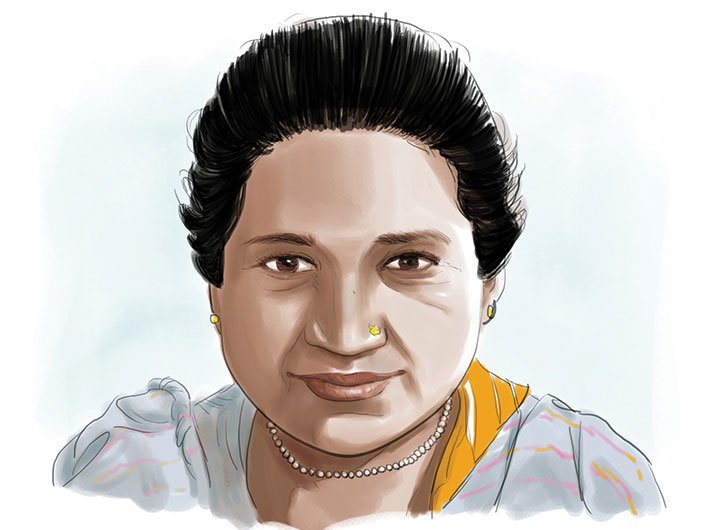AIMPLB’s justification for discrimination against women flies in the face of constitutional guarantee against discrimination on the ground of gender
The All India Muslim Personal Law Board (AIMPLB) has defended triple talaq and polygamy before the supreme court (SC). The argument that personal law is immune from judicial scrutiny will be considered in the court but the board has evoked a debate, within the community and outside, by supporting polygamy as a social and moral necessity and justifying triple talaq, claiming it saved lives of women by allowing husbands get “rid” of wives following a discord.
With the board justifying the husband’s unilateral right to divorce stressing women were “weaker sex” and backing polygamy for it helped preserve “chastity”, it may have only added fuel to the ongoing demand for reform in the Muslim personal law.
The AIMPLB has filed two affidavits in response to petitions challenging the constitutional validity of triple talaq, polygamy and other practices, which allegedly propagate discrimination against women. The practices are set to be tested on the touchstone of fundamental rights guaranteed under the constitution.
While AIMPLB questioned the jurisdiction of the court to go into matters of religion, it has accepted prevalence of discrimination and has sought to justify it. The board has tried to justify triple talaq and polygamy but, more often than not, the justification is based on the assumption that women are inferior or not equal to men. Ironically, this is the main basis – discrimination on the ground of sex – on which the provisions have been challenged.
In its affidavits before the SC, the AIMPLB, while defending triple talaq, has justified discrimination against women on account of their alleged inferior decision-making abilities, likelihood of being swayed by emotions and to keep the rate of divorce low.
“Shariah grants the right to divorce to husband because men have greater power of decision making. They are more likely to control emotions and not to take a hasty decision,” AIMPLB said in one of the affidavits.
The AIMPLB has virtually ignored the fact that women had as much stake in marriage as men and they too had a right to happiness in marriage. “The decision whether a man can live a happy life with his wife or not and whether divorce is necessary or not relates to the sentiments of the husband. The decision in this regard can, therefore, be taken by the husband himself,” one of the affidavits said.
The AIMPLB further argued that allowing the husband an easy divorce was in favour of women. A husband wanting to get “rid” of his wife would resort to murder if the process of separation was time consuming. “Marriage is a contract in which both the parties are not physically equal. Male is stronger and female weaker sex. Man is not dependent upon woman for his protection.
On the contrary, she needs him for her defence. If there develops serious discord between the couple and husband does not at all want to live with her, legal compulsions of time consuming separation proceedings and expenses may deter him from taking the legal course. In such instances, he may resort to illegal, criminal ways of murdering or burning her alive,” it said.
The argument is not convincing as the board has not explained as to how the situation would change if the wife was also empowered to dissolve marriage by triple talaq.
On husbands alone enjoying the right to divorce, AIMPLB has argued that divorce rate was higher in societies which allowed both husband and wife equal right to seek divorce. “… as a result of gender parity and securing divorce through court alone, the divorce rate has shot up in the West,” AIMPLB said.
Coming to polygamy, the AIMPLB said it was undesirable but was a social need. The man-woman ratio generally falls as the death rate for men is higher, it said, adding it was men who generally died in accidents and wars. “Again usually men are victims of traffic and industrial accidents, and crimes. 90% of the long term prisoners are male. Men are awarded long term sentences for their heinous crimes which even deviant women cannot commit owing to their natural frailty,” the AIMPLB said.
On women and women rights groups opposing polygamy, the AIMPLB said: “Women should appreciate this point that if the ratio of women is higher, would they prefer wedlock for fellow women, or let them be illicit mistresses of men, without any of the rights which a wife gets.”
The AIMPLB claimed that Muslims had the lowest rate of polygamy in India. The board, however, supported the practice as it helped preserve purity and chastity.
“The moral aspect of polygamy is indeed important. Chastity and modesty is the essence of humanity. Man’s social life stands out for the marital tie between man and woman. They act with utmost sincerity towards each other. Other creatures do not possess this sexual and emotional fidelity. Chastity is innate in the human nature, and is appreciated by every sane sensible person,” AIMPLB said in its affidavits.
“Polygamy ensures sexual purity and chastity,” AIMPLB said. Purity and chastity were clearly with reference to women as the AIMPLB emphasised that “one does not tolerate any profanity directed against his mother, wife, sister, and daughter”.
“Whenever polygamy has been banned, it emerges from history that illicit sex has raised its head,” AIMPLB said.
The AIMPLB, which is a non-government body constituted for protecting Muslim personal law and for striving for annulment of laws or judgments interfering with it, clearly noted that triple talaq was a sin and polygamy an undesirable act but went on to defend the practices. “It is submitted that though pronouncement of Triple Talaq is considered to be a sin, it is still a valid and effective form of divorce,” it said.
While the board has tried to justify the application of the provisions in the social milieu, it failed to note that the court is not considering introduction of uniform civil code or reform in the Muslim personal law. The court is considering validity of the practices on the touchstone of the right to equality and other fundamental rights.
Shayara Bano, who has filed one of the petitions, has argued that the practices violated her fundamental rights which the court was bound to protect and enforce. She has specifically challenged the constitutional validity of a pre-independence law – Muslim Personal Law (Shariat) Application Act, 1937 – which made triple talaq and other practices applicable to Muslims in India. The court will intervene if a case of infringement of fundamental right is made out.
The AIMPLB may have made her task easy by attempting to justify discrimination against women rather than defending the practices on the touchstone of fundamental rights.
The constituent assembly had specifically rejected after a debate an amendment to make freedom to follow personal law a fundamental right.
Dr BR Ambedkar was against any protection to practices in conflict with the fundamental rights. “After all, what are we having this liberty for? We are having this liberty in order to reform our social system, which is so full of inequities, so full of inequalities, discriminations and other things, which conflict with our fundamental rights,” he said, while rejecting the demand for a fundamental right status to personal laws.
Singh is a Delhi-based lawyer.
(The article appears in September 16-30, 2016 edition of Governance Now)

